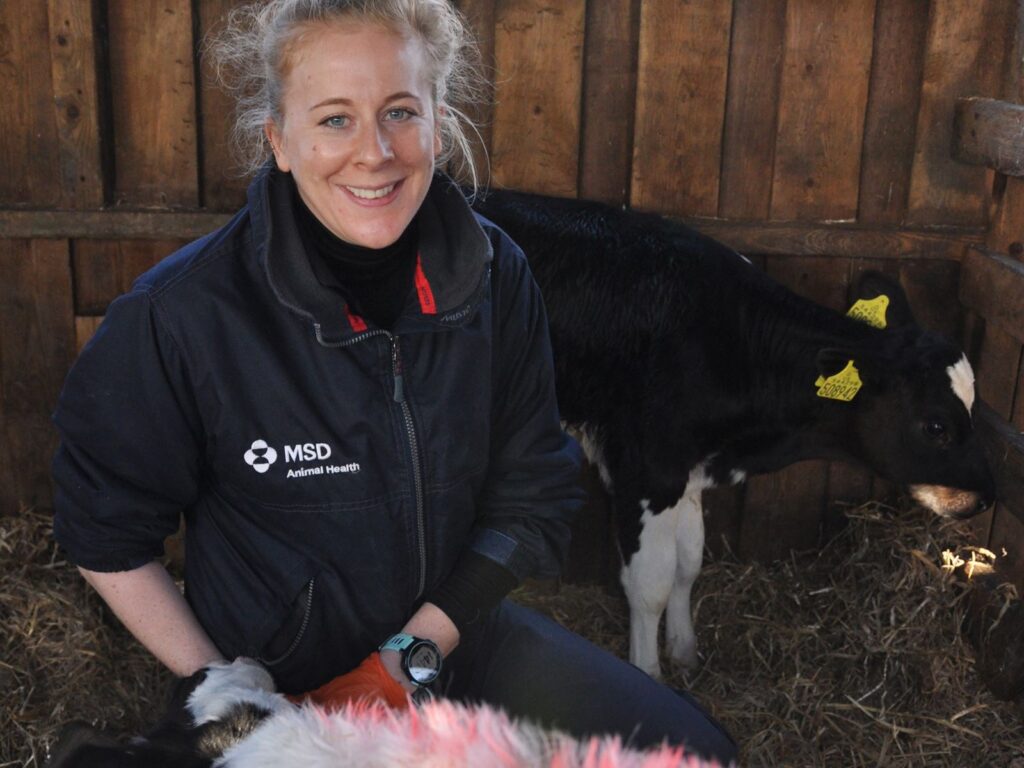Bovine coronavirus ‘needs to be taken more seriously’ by industry, data suggests
27th July 2023
Livestock farmers are being urged to consider vaccinating against bovine coronavirus (BCoV) as recent studies have identified the pathogen as the most prevalent virus behind calf respiratory disease in the UK.

Dr Kat Baxter-Smith suggested the role of bovine coronavirus within the calf respiratory disease complex needs to be taken more seriously.
Often described as inevitable by farmers, calf respiratory disease is widespread in the UK and comes at a high cost from an emotional and business productivity perspective.
Despite it being considered as a critical area for overuse of antibiotics, there is an under use of vaccination in the UK cattle sector against the disease.
A lack of immunity against BCoV poses a major risk factor for calf health, as the virus has been found to be more widespread than previously thought. Calf serology tests conducted on 59 UK farms with a known history of respiratory disease in 2021-2022 have reported 91.5% of samples being positive for BCoV.
Speaking at the National Youngstock Conference on 20th July, Dr Kat Baxter-Smith from MSD Animal Health UK suggested coronavirus needed to be taken more seriously as a respiratory pathogen by veterinary practitioners and the UK cattle industry.
“While BCoV is a relatively well-known cause of neonatal calf diarrhoea – and the same virus as the respiratory variant – its role and impact in calf pneumonia has been less well defined. However, our latest diagnostic data certainly shows its overwhelming presence during calf respiratory disease outbreaks in the UK,” she said.
Dr Baxter-Smith explained that there may be a link between initial respiratory infection and intestinal infection because the virus is produced in the respiratory tract and then swallowed with the copious quantities of mucus generated during infection.
She added that the fact BCoV is frequently isolated alongside other, more recognised respiratory disease pathogens such as BRSV, M. haemolytica, Pi3 and M. bovis, suggests an interplay between these organisms.
“Research has already shown that BCoV infection disturbs the protective mucus lining of the thoracic tract2. It may therefore be that BCoV ‘opens the door’ for the other viral and bacterial pathogens to establish themselves and cause disease,” she explained.
Dr Baxter-Smith went on to highlight the need for re-evaluating how the industry deals with BCoV in light of the pathogen’s ubiquitous presence in the UK cattle population and the recent human experience of coronavirus as a significant respiratory pathogen.
To maintain effective control and protect calves from respiratory disease, she urged farmers to work closely with their vet and develop a bespoke action plan that suits the needs of their farm.
“Maximising a calf’s own ability to resist disease by focusing on excellent colostrum management combined with a robust vaccination programme is key,” she stressed.
“Calves can suffer pneumonia lesions to their lungs from as young as two weeks of age, so early and appropriate vaccination against respiratory disease can often tip the balance towards more effective control,” Dr Baxter-Smith concluded.
